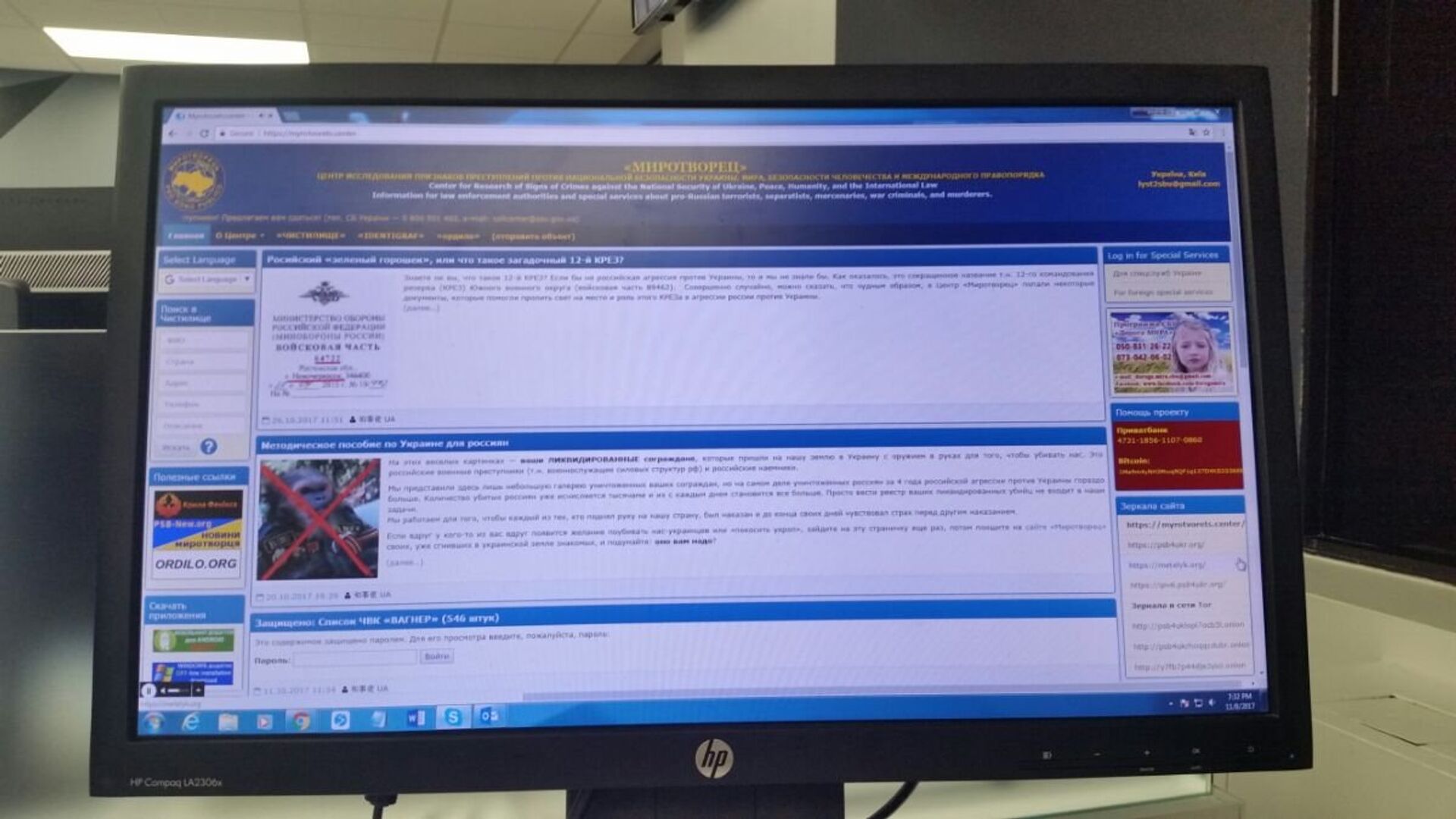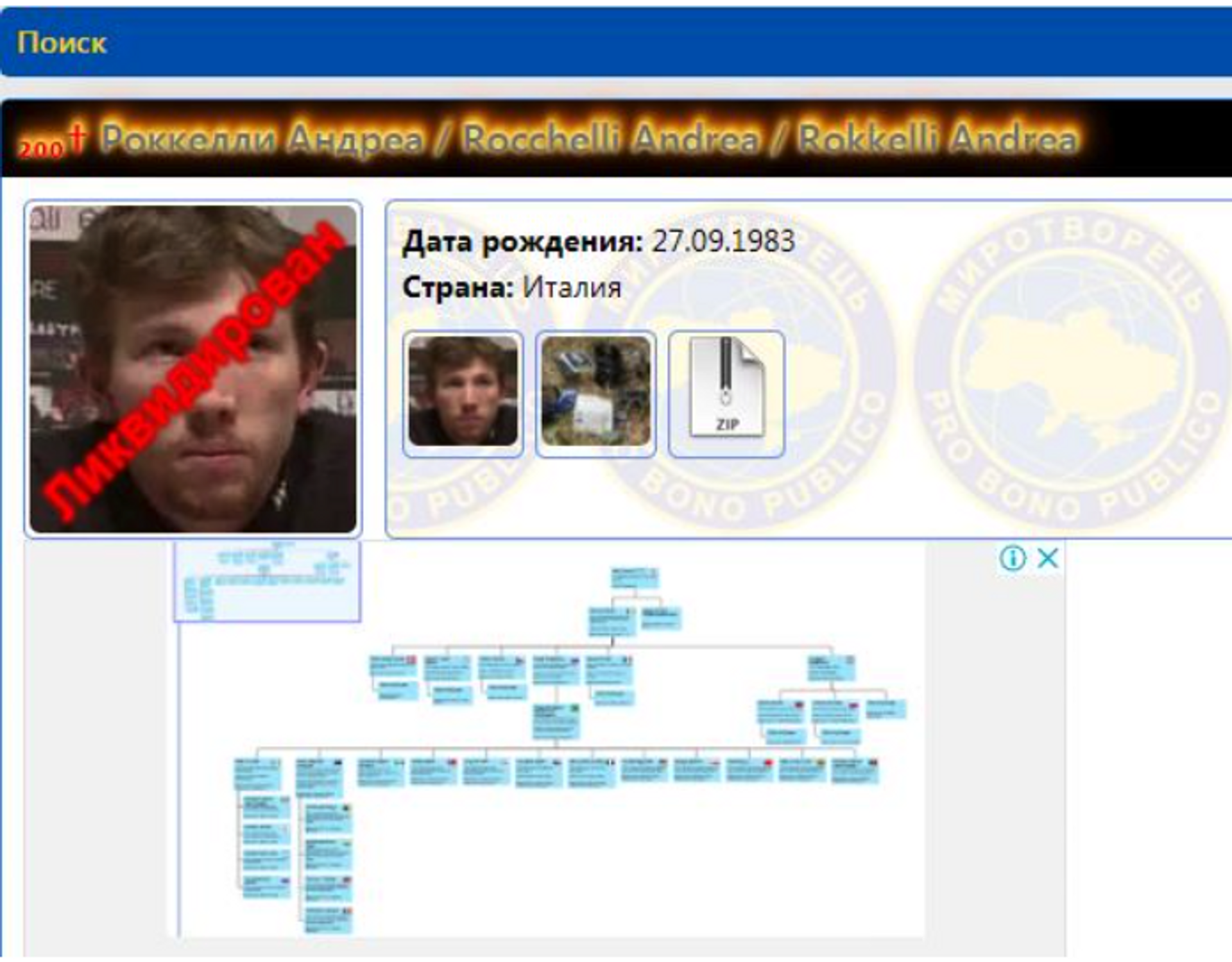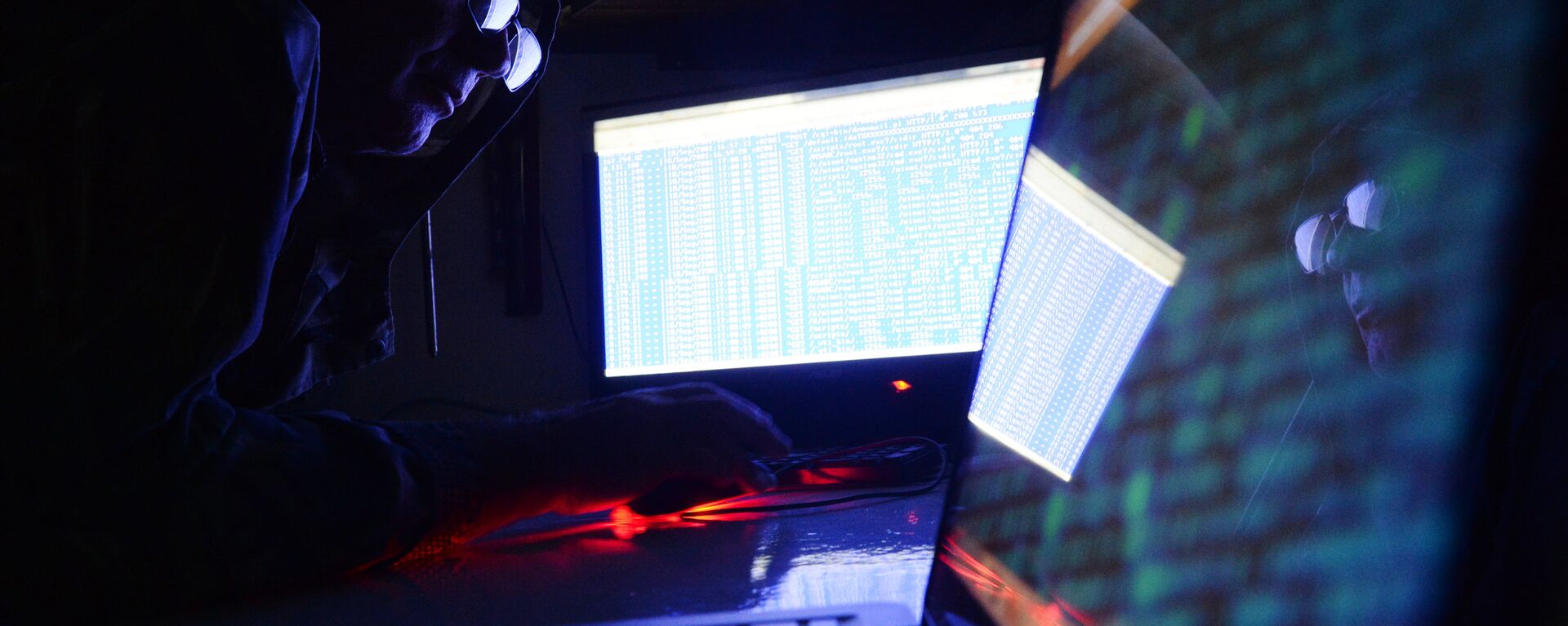‘If You’re On That List, You’re Dead’: UK Journo Speaks Out After Being Placed On Ukrainian Hit List
05:05 GMT 24.07.2022 (Updated: 20:56 GMT 19.10.2022)

© Sputnik / Michelle Witte (Sputnik)
Subscribe
Exclusive
As the surveillance state continues to strengthen, it’s safe to say we’ve all gotten the feeling at some point that we’re being watched. But unlike many of us, Press TV correspondent Johnny Miller now has the receipts to prove it – after he was recently placed on a semi-official Ukrainian hit list.
In an exclusive interview, PressTV correspondent Johnny Miller tells Sputnik News that for those in Western Ukraine, once you’ve been added to the Mirotvorets hit list, “you’re dead.”
“Mirotvorets,” meaning ‘peacemaker’ – ”which of course is a very Orwellian name for a hit list,” notes Miller – “has been around since the Ukrainian revolution/coup in 2014 and it, basically, lists the enemies of the state of Ukraine.”
Miller discovered he had been targeted by the shadowy outfit Thursday after having reached out to Mirotvorets’ operators for comment about a story on their role in doxxing Faina Savenkova, a 13-year-old girl living in Lugansk.
“I contacted them for a statement. They didn't reply. They put me on the list,” Miller notes. “And it's very well researched.”
Miller explains that the operators of the online hit list, the so-called “Mirotvorets Centre,” are “not just some crazy guy, who's just writing names on a website. They've looked at all my reports, they’ve detailed my work, detailed what I say, put pictures up of everything that I’ve done – for other people they put their phone numbers, they put their home addresses, and call them enemies of the state.”
In Miller’s case, his file apparently also included “lies.” Chief among them - that he works with the Russian special services in Donetsk. “I don't, I’m just an independent journalist,” he clarifies.
Doing journalism in Ukraine is a crime now. Putting our brave correspondent,@johnnyjmils, on a kill list for doing his job is abhorrent. The crime committed by Johnny in his reporting for @PressTV is his questioning of one sided narrative of NATO media.https://t.co/0rYNUkoGOi pic.twitter.com/Bbgzz7u5w3
— Ahmad Noroozi (@ANoroozee) July 22, 2022
As numerous observers have pointed out, there’s reason to believe Mirotvorets is connected to Ukrainian intelligence. “The Ukrainian former interior minister praised the site,” says Miller.
“There's links to the [Ukrainian] government,” he says, explaining that “it's not clear how closely related it is to the Ukrainian government, but they clearly use it as well to check on you.”
“And it’s unclear where that line between the government and the ultranationisalists/far-right/neo-nazis, whatever you want to call them. It’s unclear where that line is. You know, it’s very shady, where that line is, and we can debate it. But that’s the real danger… the real danger of being on the list is that it shuts down all debate in Ukraine.”
For the journalists unlucky enough to cross paths with them, like Italian journalist Andrea Rocchelli, the consequences can be lethal. As Miller explains, after Rocchelli was killed amid Ukrainian shelling in 2014, “his photo was there” on the site “with big red letters: ‘LIQUIDATED’ over his photo.”

Photos of slain Italian journalist Andrea Rocchelli were branded by Mirotvorets editors with Cyrillic text reading: "ликвидирован" - "liquidated."
Like Rocchelli, Miller takes pains to emphasize that he doesn’t necessarily take sides in the ongoing hostilities. But that apparently did little to satisfy those in charge of the hit list.
“I think anybody who says absolutely anything” can be targeted, he says. “I mean, I’ve just done my job here, to be honest: report on Ukrainian war crimes, report on the fact that people support the Russians here, and you’re going on that list.”
The correspondent noted with bewilderment the mainstream media’s double standards regarding the regime in Ukraine amid the conflict:
“If I’d said to you, the British or American government, there are websites in those countries which post the home details of journalists and children, anybody [who] questioned the government – what kind of conclusion would you make about the British and American government?” wonders Miller.
“That it was a moderate government that believed in human rights, or would you think that it was some kind of terror state? That’s what the Ukrainian government is.”
“How you can’t see that a website that is linked to your government that promotes violences against children and journalists and you don’t care, and you promote it,” asks the correspondent. “And you know, this whole idea that extremism in Ukraine is just Russian propaganda? You’ve got a website promoting violence towards children. It’s not a good look.”
“Like, you can’t pretend that this is all just Russian propaganda when it’s right there in front of your eyes. And this is why United Nations, Human Rights Watch, Committee to Protect Journalists, and I understand some western politicians or people have said, ‘shut it down.’ Because it’s just so blatantly, completely unacceptable.”
“But they carry it on. And my fear is also that NATO, the NATO para-leaders, whether it's [the] United States [or others] – want this site to continue. Why? Because so many Ukrainians want peace. But this site basically stops anybody saying ‘we want peace, we want to negotiate with Russia.’ We just have to carry on with war. And that’s why I don’t think they’ll take it down. Because they need to increase the extremism in Ukraine to keep them fighting against Russia rather than seek peace.”
According to Miller, that’s “the reason it’s not been taken down: It basically shuts down journalism or any kind of criticism in Ukraine.”
“So if you’re a Ukrainian journalist, or a politician, or a citizen, and you want to say ‘there’s a problem with ultra-nationalism in Ukraine,’ or even to the extent that if you said, ‘I think we should sue for peace with Russia,’ if you said – and this is the view of many Ukrainians, and I know this because I’ve got contacts in Kiev – ... if you’re a Ukrainian citizen and you say ‘I would be happy to cede territory to Russians to have peace,’ you could go on that list,” adding “it shuts down any thought or any criticism of the government or the ultranationalists.”
For Miller, that’s “part of the reason I think it’s been kept up.”
“I also think that’s the reason why NATO allows it be kept up. NATO’s very well aware of this. The United Nations, human rights groups, they’ve all [concluded] – this is a serious website. I would be dead if I was in western Ukraine,” he says.
“Everybody on that list is dead, most likely, in western Ukraine. But it’s kept up, I feel – and the reason that NATO countries as well, they have the power to shut it down; NATO has huge power over Ukraine, [the] Ukrainian government has the power to shut it down. But so many Ukrainians would want to negotiate peace with Russia.”
Unfortunately for innocent Ukrainians civilians caught in the crossfire, “it’s the ultranationalists, the nationalists who have an ideological hatred against Russia, that want to carry on the fight,” Miller notes. “And NATO, of course, wants to carry on the fight with Russia. So hence promoting this extremism. Having this website is incredibly important because it essentially shuts down any kind of criticism of the Ukrainian government and the nationalist sentiment in Ukraine. If you’re on that list, you’re dead, and that’s why I think it’s so important.”
When asked about the personal ramifications of his inclusion on Mirotvorets, Miller chuckles. “I mean, being put on a kill list is not nice. I say that flippantly but it’s basically a death threat in itself, being put on that list. And it’s a disconcerting feeling… If I was in western Ukraine, I’d most likely be killed, frankly. And I don’t want to speak too much about my private life, but it does increase the chance of you getting attacked or killed anywhere in the world if there’s Ukrainian nationalists there.”
“I think that’s part of the site is to shut down dissent, scare people, to terrorize people. And that’s very much the Ukrainian attitude, they terrorize civilians here to try to stop them supporting the so-called ‘separatists’ here. And they try and terrorize people online as well, and journalists, by threatening them with death. And that’s their tactic. And it’s the tactic of far-right extremism.”
“I don’t want to say too much… but I was in Kiev for the start of” the conflict, Miller says, “when Russian troops were surrounding Kiev and I left. I was there for a couple days and I left. Because the first couple of live interviews went up… and I realized they weren’t sufficiently pro-Ukrainian.”
“I’m trying to just tell the truth here, but I was also giving the Russian side and there was also some criticism of NATO as well. And I saw those interviews go out live and I looked at them and I suddenly realized I need to leave the country,” he continues. “Because the Ukrainian government had just banned all opposition, all left-wing opposition parties, banned all media except the one government channel… and I knew that if I was stopped at a checkpoint, and they saw this interview, I would be [killed]. Anybody who’s just trying to tell both sides of the story can be put on a list. And that’s why I left, as well.”



